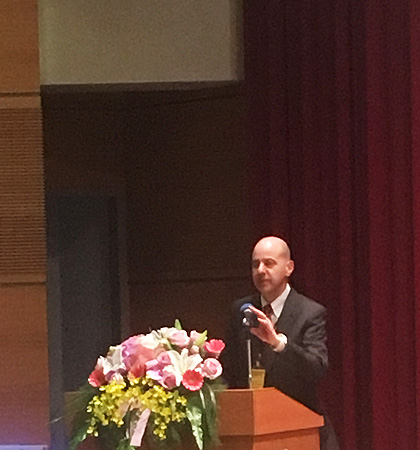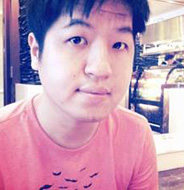Since Mark Lemley, professor of the Stanford Law School, published his essay ‘Patent Holdup and Royalty Stacking’ in 2007, the conflict between patent licensing and antitrust has been a topic of hot debate in the tech industry, resulting in the FRAND rule for Standard Essential Patent (SEP) licensing. However David Kappos, former head of the USPTO, has argued that fieldwork points to the idea that “patent holdup” may never have existed.
Telecommunication industry giant Qualcomm has found itself in dire straits recently. After huge fines imposed by China and South Korea for violations of anti-competition laws, Qualcomm has now been accused on its home turf by the US Fair Trade Commission on similar grounds. Apple, one of its biggest customers, has also launched a lawsuit against Qualcomm, stating that the IC design company misused its dominance in the telecommunications sector to acquire unreasonable royalties.
It’s clear from following the fate of Qualcomm that the exclusive rights granted by patent laws are restrained significantly by antitrust law. What’s more, licensing practices surrounding standard essential patents (SEPs), which constitute many of Qualcomm’s patents, are subject to stricter review, as licenses for SEPs are required by every ICT manufacturer. However, David Kappos, former head of the US Patent and Trademark Office and current partner with Cravath, Sawine & Moore LLP, which has previously represented Qualcomm, does not agree with this state of affairs. He believes that in order to protect patent holders, the idea of patent holdup needs to be critically examined.
The judicial system is not friendly to SEP holders
Firstly, Kappos argues that SEP holders face huge legal risks. Currently, US courts apply the reasonable royalty rule in patent infringement damage calculations. This means that while patent holders raise patent infringement lawsuit against tortfeasors in court, the compensation, in the event that they even win the case, will very likely be lower than the expected royalties in ex ante negotiations. In addition to this, courts may underestimate the patent’s value in the course of litigation, as well as underestimating litigation costs. All this contributes to the decay in patent holders’ interests.
“SEP is a double-edge sword,” Kappos concluded. Although holding SEPs is often seen as a sign of strength in R&D, company profits reap little benefit from holding them.
Figure 1:David Kappos, Partner, Cravath, Swaine & Moore LLP

Photo by Clarence Chiang
SEP holders never dominate markets
Patent holdup theory proposes that SEP holders “hold up” licensees through their superior market power; however Kappos believes that this hypothesis ignores industry practice on the ground.
Taking the telecommunications industry as an example, Kappos argued that the competition between upstream and downstream companies, or even among major R&D companies, is quite fierce. “Manufacturers needs core technology to makes products, but at the same time tech innovators can only realize profits through real products.” In addition, before industry standard setting, R&D companies have to make huge investments; if they are not able to license out these inventions, the investment goes to waste.
Under such circumstances, Kappos believes that SEP holders are not a dominant force. “In the ICT industry, there are in total 21 companies who can regularly collect licensing royalties. It can hardly be an industry monopoly and be harmful to customers.”
The FRAND rule is getting stricter
It is not easy to succeed in industry standard setting, Kappos stated. In addition to being recognized by all industry members, one also has to give up some of the patent rights. “Patent holders must comply with the FRAND licensing rules set by the SSO (Standard Setting Organizations), if their patents are to be accepted as SEPs.”
Kappos stated that the FRAND rule has become a consensus in many industrial sectors and is frequently adopted in lawsuits. To maintain their SEP eligibility, therefore, patent holders are unlikely to receive unusually high payments from patent licensing. That is why there is little evidence of royalty stacking, he said.
Kappos believes that neither “patent holdup” nor “royalty stacking” exists. He stated that society should reconsider the value of intellectual property rights. “[The] patent system and industry standard setting play critical roles in key technology development and assimilation. When making policy or law, we should follow the real industry conditions rather than false theoretical assumptions. In this way the technological innovation of our society can be assured.”
Source:
- International Symposium on IP Licensing and Competition Laws, College of Law, National Taiwan University, 2017/03/09
- Patent Holdup and Royalty Stacking, Mark A. Lemley and Carl Shapiro, Texas Law Review, Vol. 85, 2007
 |
|
| Author: |
Clarence Chiang |
| Current Post: |
Senior Editor, NAIP Newsletter |
| Education: |
Business Administration, National Chengchi University, Taiwan |
| Experience: |
Reporter, CommonWealth Magazine
Reporter, Business Today Magazine |
|
|
|
| Facebook |
|
Follow the IP Observer on our FB Page |
|
|
|
|
|
|

